Persian darwesh. The Arabic word faqir signifies “poor”; but it is used in the sense of being in need of mercy, and poor in the sight of God, rather than in need of worldly assistance. Darwesh is a Persian word, derived from dar, “a door”, ie those who beg from door to door. The terms are generally used for those who lead a religious life. Religious faqirs are divided into two great classes, the ba shar’ (with the law), or those who govern their conduct according to the principles of Islam; and the be shar’ (without the law, or those who do not rule their lives according to the principles of any religious creed, although they call themselves Musulmans. The former are called salik, or travelers on the pathway (toriqah) to heaven, and the latter are with azad (free), or majzub (abstracted). The salik embrace the various religious orders who perform the zikrs, described in the article ZIKR.
The Majzub faqirs are totally absorbed in religious reverie. The Azad shave their beards, whiskers, moustachios, eye-brows, and eye-lashes, and lead lives of celibacy.
The Azad and Majzub faqirs can scarcely be said to be Muslims, as they do not say the regular prayers or observe the ordinances of Islam, so that a description of their various sects does not fall withing the limits of this work. The Salik faqirs are divided into very numerous orders; but their chief difference consists in their sifsilah, or chain of succession, from their great teachers, the Khalifahs Abu Bakr and ‘Ali who are said to have been the founders of the religious order of faqirs.
It is impossible to become acquainted with all the rules and ceremonies of the numerous orders of faqirs; for, like those of the Freemasons and other secret societies, they are not divulged to the uninitiated.
The doctrines of the darwesh orders are those of the Sufi mystics, and their religious ceremonies consist of exercise called zikrs, or “recitals.” [ZIKR, SUFIISM.]
M. D’Ohsson, in his celebrated work on the Ottoman Empire, traces the origin of the order of faqirs to the time of Muhammad himself:-
“In the first year of the Hijrah, forty-five citizens of Makkah joined themselves to as many others of al-Madinah. They took an oath of fidelity to the doctrines of their Prophet, and formed a sect or fraternity, the object of which was to establish among themselves a community of property, and to perform every day certain religious practices in a spirit of penitence and mortification. To distinguish themselves from other Muslims, they took the name of Sufis [SUFIISM.] This name, which later was attributed to the most zealous partizans of Islam, is the same still in use to indicate any Musulman who retires from the world to study, to lead a life of pious contemplation, and to follow the most painful exercises of an exaggerated devotion. To the name of Sufi they added also that of faqir, because their maxim was to renounce the foods of the earth, and to live in an entire abnegation of all worldly enjoyments, following thereby the words of the Prophet, al-faqru fakhri, or ‘Poverty is my pride.’ Following their example, Abu Bakr and ‘Ali established, even during the life-time of the Prophet and under his own eyes, religious orders, over which each presided, with Zikrs or peculiar religious exercises, established by them separately, and a vow taken by each of the voluntary disciples forming them. On his decease, Abu Bakr made over his office of president to one Almanu ‘l-Farisi and ‘Ali to al-Hasanu ‘l-Basri, and each of these charges were consecrated under the title Khalifah, or successor. The two first successors followed the example of the Khalifahs of Islam, and transmitted it to their successors, and these in turn to others the most aged and venerable of their fraternity. Some among them, led by the delirium of the imagination wandered away from the primitive rules of their society, and converted, from time to time, these fraternities into a multitude of religious orders.
“They were doubtlessly emboldened in this enterprise by the of a recluse who, in the thrity-seventh year of the Hijrah (A.D. 657) formed the first order of anchorets of the great of the greatest austerity, named Uwais al-Karani, a native of Karu, In Yamen, who one day announced that the archangel Gabriel had appeared to him in a dream, and in the name of the Eternal God, Commanded him to withdraw from the world, and to give himself up to a life of contemplation and penitence. This visionary pretended also to have received from the heavenly visitor the plan of his future conduct, and the rules of his institution. These consisted in a continual abstinence, in retirement from society, in an abandenment of the pleasures of innocent nature, and in the recital of an infinity of prayers day and night (Zikrs). Uwals even added to these practices. He went so fat as to draw out his teeth, in honor, it is said, of the Prophet, who had lost two of his own in the celebrated battle of Uhud. He required his disciples to make the same sacrifice. He pretended that all those who would be especially favored by heaven and really called to the exercises of his Order, should lose their teeth in a supernatural manner; that an angel should draw out their teeth whilst in the midst of a deep sleep; and that on a awakening they should find them by their bedside. The experiences of such a vocation were doubtless too severe to attract many proselytes to the order; it only enjoyed a certain degree of attraction for fanatics and credulously ignorant people during the first days of Islam. Since then it has remained in Yaman, where it originated, and where its partisans were always but few in number.
It was about A.H. 49 (A.D. 766), that the Shaik Alwan, a mystic renowned for his religious fervor, founded the first regular order of faqirs, now known as the Alwaniyah, with its special rules and religious exercises, although similar associations of men without strict rules had existed from the days of Abu Bakr, the first Khalifah. And although there is the formal declaration of Muhammad, “Let there be no monasticism in Islam,” still the inclinations of Eastern races to a solitary and contemplative life, carried it even against the positive opposition of orthodox Islam, and now there is scarcely a maulawi or learned man of reputation in Islam who is not a member of some religious order.
Each century gave birth to new orders, named after their respective founders, but in the present day there is no means of ascertaining the actual number of these associations of mystic Muslims. M D’Ohsonn, in the work already quoted, gives a list of thirty-two orders, but it is by no means comprehensive.
Three of these orders, the Bastamiyah, the Naqshbandiyah, and the Bakhtashiyah, descend from
the order established by the first Khalifah, Abu Bakr. The forth Khalifah, ‘Ali gave birth to all the others. Each order has its silsilah, or chain of succession, from one of these two great founders.
The Naqshbandiyah, who are the followers of Khwajab Pir Muhammad Naqshband, are a very numerous order. Thye usually perform the Zikr-I-Khafi, or silent devotions, described in the account of ZIKR:
The first duty of the members of this Order is to recite, daily, particular prayers, called the khatim Khawjagan; once, at least, the Istighfar (Prayer for Forgiveness); seven times the salamat; seven times the Fatihah (first chapter of the Qur’an); nine times the chapter of the Qur’an called Inshirah (Chapter xciv); lastly, the Ikhlas (Chapter cxii). To these are added the ceremonies called Zikr. [ZIKR.]
For these recitals they meet together once a week. Ordinarily, this is on Thursday, and after the fifth prayer of the day, so that it occurs after night-fall. In each city, suburb, or quarter, the members of this association, divided into different bodies, assemble at the house of their respective pir or sheikh, where, seated, they perform their pious exercises with the most perfect gravity. The sheikh, or any other brother in his stead, chants the prayers which constitute the association and the assembly respond in chorus, “Hu (He), ” or “Allah!” In some cities, the Naqshbandiyah have especial halls, consecrated wholly to this purpose, and then the sheikh only is distinguished from the other brethren by a special turban.
The Bakhtashiyah was founded by a native of Bukhara, and is celebrated as being the order which eventually gave birth to the fanatical order of Janissaries. The symbol of their order is the mystic firdle, which they put off and on seven times saying:-
1. “I tie up greediness, and unbind generosity.”
2. “I tie up anger, and unbind meekness.”
3. “I tie up avarice, and unbind piety.”
4. “I tie up ignorance, and unbind the feet of God.”
5. “I tie up passion, and unbind the love of God.”
6. “I tie up hunger, and unbind (spiritual) contentment.”
7. “I tie up Satanism and unbind Divineness.”
The Maulawiyah are the most popular religious order of faqirs in the Turkish empire.
They are called by Europeans, who witness their zikrs and various religious performances at Constantinople and Cairo, the “dancing”, or “whirling” darwashes. They were founded by Maulawi Jalalu ‘d-din ar-Rumi, the renowned author of the Masnawi, a book much read in Persia, and, indeed, in all parts of Islam.
They have service at their takyah, or “convent”, every Wednesday and Sunday at two o’clock. There are about twenty performers with high round felt caps and brown mantles. At a given signal they all fall flat on their faces, and rise and walk slowly round and round with their arms folded, bowing and turning slowly several times. They then chel
off their mantles and appear in long bell-shaped petticoats and jackets, and then begin to spin, revolving, dancing and turning with extraordinary velocity. [ZIRK.]
The Qadiriyah sprang from the celebrated Saidi ‘Abdu ‘l-Qadir, surnamed Pir-i-Dasis gir, whose shrine is at Bagdad. They practice both the Zikr-i-Jali and the Zikr-i-Khafi. Most of the Sunni Maulawis on the north-west frontier of India are members of this order. In Egypt it is most popular among fishermen.
The Chishtiyah are followers of Mu’inu ‘d din Banda Nawaz, surnamed the Gisu daraf, or the “long-ringleted.” His shrine is at Calburgah.
The Shi’ahs generally become faqirs of this order. They are partial to vocal music, for the founder of the order remarked that singing was the food and support of the soul. They perform the Zikr-i-Jali, desribed in the articles on ZIKR.
The Jalaiyah were founded by Saiyid Jalalu ‘d-din of Bukhara. They are met with in Central Asia. Religious mendicants are often of this order.
The Suhrwardiyah are a popular order in Afghanistan, and comprise a number of learned men. They are the followers of Shihabu ‘d-din of Suhrward of al-‘Iraq. These are the most noted orders of ba shar’ faqirs.
The ba shar’ faqirs are very numerous.
The most popular order in India is that of the Murdariyah, founded by Zinda Shah Murdar, of Syria, whose shrine is at Makanpur, in Oudh. From these have sprung the Malang faqirs, who crowd the bazaars of India. They wear their hair matted and tied in a know. The Rufa’iyah order is also a numerous on in some parts of India. They practice the most severe discipline, and mortify themselves by beating their bodies. They are known in Turkey and Egypt as the “Howling Darwashes.”
Another well-known order of darwashes is the Qalandariyah, or “Wandering Darwashes”, founded by Qalandar Yusuf al-Andalusi, a
native of Spain. He was for a time a member of the Bakhtashis; but having been dismissed from the order, he established one of his own, with the obligation of a perpetual traveling. The Qalandar faqir is a prominent character in Eastern romance.
Each order is established on different principles, and has its rules and statutes and peculiar devotions. These characteristics extend even to the garments worn by their followers. Each order has, in fact, a particular dress, and amongst the greater part of them this is chosen so as to mark a difference in that of the sheikh from that of the ordinary members. It is perceived principally in the turbans, the shape of the coat, the color, and the nature of the stuff of which the dresses are made. The sheikhs wear robes of green or white cloth; and for any of those who in winter line them with fur, use that kind called petit gris and zibaline martin. Few darwashes use
cloth for their dress. Black or white felt dresses called ‘aba’, such as are made in some of the cities of Anatolia, are the most usual. Those
who wear black felt are the Jalwattis and the Qadiris. The latter have adopted it for their boots, and muslin for their turbans
Some, such as the Maulawis and the Bakris, wear tall caps called kulahs, made also of felt, and others, such as the Rufaus, use short caps called Taqiyah, to which is added a coarse cloth. The hand dress of almost all the darwashes, is called taj, which signifies a “crown”. These turbans are of different forms, either from the manner in which the muslin is folded, or by the cut of the cloth which covers the top of the head. The cloth
is in several gores. Some have four, as the Adbamis; some six, as the Qadiris and the Sa’dis; the Gulshanis have eight; the Bakhtashis twelve; and the Jalatis eighteen.
The darwashes carry about with them one another of the following articles; a small crooked stick of iron, which the devotee places under his arm-pit or forehead, to lean upon when he meditates or an iron or brass bar on which there is a little artificial hand wherewith to scratch his unwashed body, a bag made of lamb-skin, a kashkul or beggar’s wallet.
Generally, all the darwashes allow their beards and moustaches to grow. Some of the orders – the Qadiris, Rufa’is, Khalwalis, Gulshanis, Jalwatis, and the Nuru ‘d-dinis – still wear long hair in memory of the usage of the Prophet and several of his disciples. Some allow their hair to fall over their shoulders; others tie it up and put it under their turban.
Whilst private Musulmans in the habit of holding rosaries of beads as a pastime, the darwashes do the smae, only in a spirit of religion and piety. These rosaries have thirty-three, sixty-six, or ninety-nine beads, which is the number of the attributes of the Divinity [GOD.]. Some have then always in their hands, others in their girdles; and all are required to recite several times during the day, the particular prayers of their order [TASBIH.]
The individual who desires to enter an order is received in an assembly of the fraternity, presided over by the sheikh, who touches his hand and breathes in his ear three times the word, “La ilama illa ‘llah (“There is no god but God’), commanding him to repeat them 101, 151, or 301 times each day. This ceremony is called the Talqin. The recipient, faithful to the orders of his chief, obligates himself to spend his time in perfect retirement, and to report to the sheikh the visions or dreams which he may have during the course of his novitiate. These dreams, besides characterizing the sanctity of his vocation, and his spiritual advancement in the order, serve likewise as so many supernatural means to direct the sheikh regarding the periods when he may again breath in the ear of the neophyte the second words of the initiation, “Ya Allah! (“O God!”), and successively all the others to the last, “Ya Qahhar!” (“O avengefull God!”. The full complement of this exercise is called Chilleh, or “forty days”, a period sometimes even longer, according to the dispositions more or less favorable, of the candidate. Arrived at the last grade of his novitiate, he is then supposed to have fully ended hi career, called Takmilu ‘s Suluk, and acquired the degree of perfection for his solemn admission into the corps to which he has devoted himself. During all his novitiate, the recipient bears the name of Murid, or “Disciple,” and the sheikh who directs him in this pretended celestial career takes the title of Murshid, or “Spiritual Guide.”
The founder of the Alwanis laid out the first rules of this novitiate; they were subsequently perfected by the institution of the Qadiris, and more so by the Khalwatis. The darwashes of these two last societies are distinguished in some countries by the decoration of their turban, on the top of which are embroidered the words, “La ilaha illa ‘llah” (There is no god but God).
The test of the novice among the Maulawis seem to be still more severe, and the reception of these dervishes is attended with ceremonies peculiar to their order. The aspirant is required to labor in the convent of takyah 1,001 successive days in the lowest grade on which account he is called the karra kalak (jackal). If he fails in this service only one day, or is absent one night, he is obliged to recommence his novitiate. The chief of the kitchen, or ashjibashi, one of the most notable of the darwashes, presents him to the sheikh who, seated in an angle of the sofa, receives him amid a general assembly of all the darwashes of the convent. The candidate kisses the hand of the sheikh and takes a seat before him on a mat, which covers the floor of the hall. The chief of the kitchen places his right hand on the neck, and his left hand on the forehead of the novice, whilst the sheikh takes off his cap and holds it over his head, reciting the following Persian distich, the composition of the founder of the order: –
“It is true greatness and felicity to close the heart to all human passions; the abandonment of the vanities if this world is the happy effect of the victorious strength given by the grace of our Holy Prophet.”
These verses are followed by the exordium of the Takbir “Allahu akbar – God is great,” after which the sheikh covers the head of the new darwash, who now rises and places himself with the Ashjibashi in the middle of the hall, where they assume the most humble posture, their hands crossed upon the breast, the left foot over the right foot, and the head inclined towards the left shoulder. The sheikh addresses these words to the head of the kitchen:-
“May the services of this darwash, thy brother, be agreeable to the throne of the Eternal, and in the eyes of our Pit (the founder of the order); may his satisfaction, his felicity, and his glory grow in this nest of the humble, in the cell of the poor; let us exclaim ‘Ha!’ in honor of our Maulawi.”
They answer “Hu!” and the accepted novice, arising from his place, kisses the hand of the sahikh, who at this moment addresses to him some paternal exhortations on the subject of the duties of his new condition, and closes by ordering all the darwashes of the meeting to recognize and embrace their new brother.
The following is said to be the usual method of admitting a Muslim to the order of a la shar’ faqir in India. Having first performed the legal ablutions, the murid (disciple) seats himself before the murshid (spiritual guide). The murshid then takes the murid’s right hand, and requires of him a confession of sin according to the following form:-
“I ask forgiveness of the great God than Whom there is no other deity, the Eternal, the Everlasting, the Living One: I turn to Him for repentance, and beg His grace and forgiveness.
This, or a similar form of repentance, is repeated several times. The murid then repeats after the murshid:-
“I beg for the favor of God, and of the Prophet, and I take for my guide to God such a one (here naming the murshid) not to change or to separate from him. God is our witness. By the great God. There is no deity but God. Amen.”
The murshid and the murid then recite the first chapter of the Qur’an, and the murid concludes the ceremony by kissing the murshid’s hand.
After the initiatory rite, the murid under goes a series of instruction, including the zikr. Which he is required to repeat daily. The murid frequently visits his murshid and sometimes the murshids proceed on a circuit of visitation to their disciples. The place where these “holy men” sit down to instruct the people is ever afterwards held sacred, a small flag is hoisted on a tree, and it is fenced in. Such places are called “takyah”, and are prefected and kept tree from pollution by some faqir engaged for the purpose.
Another account of the admission of a murid, or “disciple”, into the order of Qadiriyah faqirs is given by Tawakkul Beg in the Journal Asiatique: –
“Having been introduced by Akhund Mulla Muhammad to Shaikh Mulla Shah, my heart, through frequent intercourse with him was filled with such a burning desire to arrive at a true knowledge of the mystical science, that I found no sleep by night, nor test by day. When the initiation commenced, I passed the whole night without sleep, and repeated innumerable times the Suratu ‘l- Ikhlas: –
Say: He is God alone;
God the eternal!;
He begetteth not, and He is not begotten;
And there is none like unto Him.
Surah cxii
“Whosoever repeats this Surah one hundred times can accomplish all his vows. I desired that the sheikh should bestow on me his love. No sooner had I finished my task, than the heart of the sheikh became full of sympathy for me. On the following night I was conducted to his presence. During the whole of that night he concentrated his thoughts on me, whilst I gave myself up to inward meditation. Three nights passed in this way. On the fourth night the sheikh said: – ‘Let Mulla Sanghim and Salih Beg, who are very susceptible to ecstatic emotions, apply their spiritual energies to Tawakkul Beg.’
“They did so, whilst I passed the whole night in meditation, with my face turned toward Makkah. As the morning drew near, a little light came into my mind, but I could not distinguish form or color. After the morning prayers, I was taken to the sheikh who bade me inform him of my mental state. I replied that I had seen a light with my inward eye. On hearing this, the sheikh became animated and said: ‘Thy heart is dark, but the time is come when I will show myself clearly to thee.’ He then ordered me to sit down in front of him, and to impress his features on my mind. Then having blindfolded me, he ordered me to concentrate all my thoughts upon him. I did so and in an instant, by the spiritual help of the sheikh, my heart opened. He asked me what I saw. I said that I saw another Tawakkul Beg and another Mulia Shah. The bandage was then removed, and I saw the sheikh in front of me. Again they covered my face, and again I saw him with my inward eye. Astonished, I cried: ‘O master! Whether I look with my bodily eye, or with my spiritual sight, it is always you I see.’ I then saw a dazzling figure approach me. The sheikh told me to say to the apparition, ‘What is your name?’ In my spirit I put the question and the figure answered to my heart: ‘I am ‘Abdu ‘l-Qadir al-Jilani, I have already aided thee, thy heart is opened.’ Much affected, I vowed that in honor of the saint, I would repeat the whole Qur’an every Friday night.
“Mulla Shah then said: “The spiritual world has been shown to thee in all its beauty.” I then rendered perfect obedience to the sheikh. The following day I saw the Prophet, the chief of the Companions, and legions of saints and angels. After three months I entered the cheerless region in which the figures appeared no more. During the whole of this time the sheikh continued to explain to me the mystery of the doctrine of the Unity and of the knowledge of God; but as yet he did not show me the absolute reality. It was not until a year had passed that I arrived at the true conception of unity. Then in words such as these I told the sheikh of my inspiration. ‘I took upon the body as only dust and water, I regard neither my heart nor my soul, alas! That in separation from Thee (God) so much of my life has passed. Thou wert I and I knew it not.”. The sheikh was delighted, and said that the truth of the union with God was now clearly revealed to me. Then addressing those who were present, he said: –
“Tawakkul Beg learnt from me the doctrine of the Unity, his inward eye has been opened, the spheres of colors and of images have been shown to him. At length, he entered the colorless region. He has now attained to the Unity; doubt and scepticism henceforth have no power over him. No one sees the Unity with the outward eye, till the inward eye gains strength and power.”
Each institution imposes on its darwashes the obligation to recite certain passages at different times of the day in private, as well as in common with others. Several have also practices which are peculiar to themselves, and which consist in dances, or rather religious circular movements. In each convent there is a room consecrated to these exercises. Nothing is simpler that its construction; it contains no ornament of any nature; the middle of the room, turned towards Makkah, contains a niche or mihrab in front of which is a small carpet, mostly made of the skin of a sheep, on which the shaikh of the community reclines; over the niche the name of the founder of the order is written. In some halls this inscription is surmounted by two others – one containing the Confession of Faith, and the other the words “Bismillah,” &c (“In the name of God, the most Clement and Merciful.”). In others are seen on the wall to the right and the left of the niche tablets, on which are written in large letters the name of God (Allah), that of Muhammad, and those of the four first Khalifahs. At others are seen the names of al-Hasan and al-Husain, grandsons of the Prophet, and some verse of the Qur’an, or thers of a moral character.
The exercise which are followed in these halls are of various kinds, a description of which is given in the account of ZIKR.
The more zealous faqirs devote themselves to the most austere acts, and shut themselves up in their cells so as to give themselves up for whole hours to prayer and meditation; the others pass very often a whole night in pronouncing the words Hu and Allah, or rather the phrase, La ilama illa ‘llah. So as to drive away sleep from their eyes, some of them stand for whole nights in very uncomfortable positions. They sit with their feet on the ground, the two hands resting upon their knees; they fasten themselves in this attitude by a band of leather passed over their neck and legs. Others tie their hair with a cord to the ceiling, and call this usage Chilleh. There are some, also, who devote themselves to an absolute retirement from the world, and to the most rigid abstinence, living only on bread and water for twelve days successively, in honor of the twelve Imams of the race of ‘Ali. This retirement is called Khalwah. They pretend that the sheikh ‘Amr Khalwati was the first to follow it, and that he often practiced it. They add that one say, having left his retirement, he heard a celestial voice saying, “O ‘Amr Khalwait, why dost thou abandon us?” And that, faithful to this oracle, he felt himself obliged to consecrate the rest of his days to works of penitence, and even to institute an order under the name of Khalwatis, a name signifying “living in retirement.” For this reason darwashes of this order consider it their duty, more that any others, to live in solitude and abstinence. The more devoted among them observe sometimes a painful fast of forty days consecutively, called by the al-arb’aun (forty). Amongst them all their object is the expiation of their sins, the sanctification of their lives, and the glorification of Islam; the prosperity of the state, and the general salvation of the Muslim people. The most ancient and the greatest of the orders, such as the Alwanis the Adhamis, the Qadiris, the Rufa’is, the Naqshbandis, the Khalwatis, &c, are considered as the cardinal orders; for which reason they call themselves the Usuls, or “Originals,”
They give to the others the names of the Furu’ or “Branches”, signifying thereby secondary ones, to designate their filiation or emanation from the first. The order of the Naqashbandis and Khalwatis hold, however, the first rank in the temporal line; the one on account of the conformity of its statutes to the principles of the ten first confraternities, and to the luster which causes the grandees and principle citizens of the empire to incorporate themselves in it; and the other, because of its being the source of the mother society which gave birth to many others. In the spiritual line, the order of the Qadiris, Maulawis, Bakhtashis, Rufa’is, and the Sa’dis, are the most distinguished, especially the three first, on account of the eminent sanctity of their founders, of the multitude of the miracles attributed to them, and of the superabundance of the merit which is deemed especially attached to them.
Although all of them are considered as mendicant orders, no darwash is allowed to beg, especially in public. The only exception is among the Bakhtashis, who deem it meritorious to live by alms; and many of these visit not only private houses, but even the streets, public squares, bureaux, and public houses, for the purpose of recommending themselves to the charity of their brethren.
They only express their requests by the words “Shayid Ullah,” a corruption from “Shayun li-‘llah,” which means, “something for the love of God.” Many of these make it a rule to live only by the labor of their hands, in imitation of Haji Baktash, their founder; and like him, they make spoons, ladles, graters, and other utensils, of wood or marble. It is these, also, who fashion the pieces of marbles, white or veined, which are used as collars or buckles for the belts of all of the darwashes of their order, and the kashkuls, or shell cups, in which they are obliged to ask alms.
Although in no wise bound by any oaths, all being free to change their community, and even to return to the world, and there to adopt any occupation which may please their fancy, it is rarely that anyone makes use of this liberty. Each one regards it as a sacred duty to end his days in the dress of his order. To this spirit of poverty and perseverance, in which they are so exemplary, must be added that of perfect submission to their superior. This latter is elevated by the deep humility which accompanies all their conduct, not only in the interior of the cloisters, but even in private life. One never meets them anywhere but with head bent and the most respectful countenance. They never salute anyone, particularly the Maulawis, and the Backhtashis, except by the exclamation, “Ya Hu!”. The words Ai bi-‘llah, “thanks to God,” frequently are used in their conversation; and the more devout or enthusiastic speak only of dreams, visions, celestial spirits, super-natural objects, &c.
They are seldom exposed to the trouble and vexations of ambition, because the most ancient darwashes are those who may aspire to the grade of sheikh or superior of the convent. The sheikhs are named by their respective generals called the Ratsu ‘l- Masha’ikh (chief of sheikhs). Those of the Mualawis have the distinctive title of Cheleby Efendi. All reside in the same cities which contain the ashes of the founders of their orders called by the name of Astaneb signifying “the court”. They are subordinate to the Mufti of the capital, who exercises absolute jurisdiction over them. In the Turkish Empire the Shaikhu ‘l-Islam has the right of removing all the generals of the various orders, even those of the Qadaris, the Maulawis, and of the Bakhtashis, although the dignity be hereditary in their family, on account of their all three being sprung from the blood of the same founders of their orders. The Mufti has likewise the right to confirm the shaikhs who may be nominated by any of the generals of the orders.
(See The Dervishes on Oriental Spiritualism, by John P. Brown; Malcolm’s Persia; Lane’s Modern Egyptians; D’Ohsson’s Ottoman Empire; Ubicini’s Letters on Turkey; Herklott’s Musalman’s; Tazkiratu ‘l-Auliy, by Shaikh Faridu ‘d-Din al-‘Attar.)
Based on Hughes, Dictionary of Islam

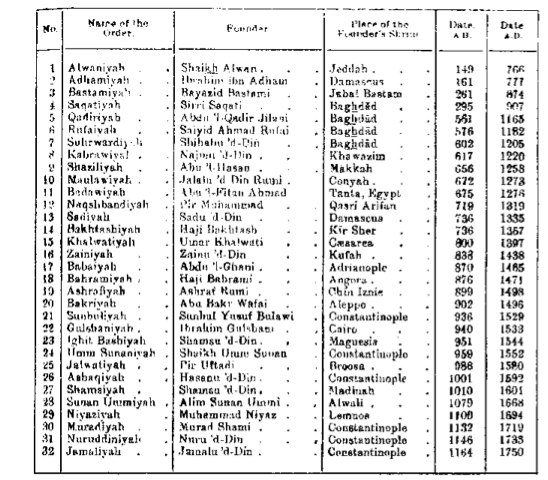
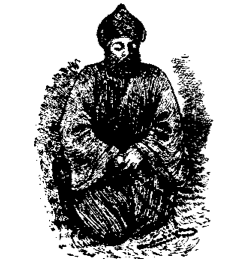
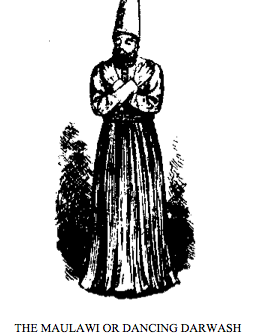
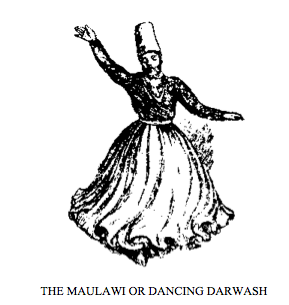
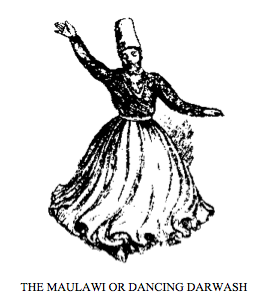
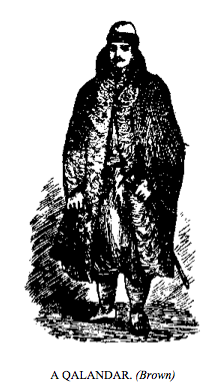
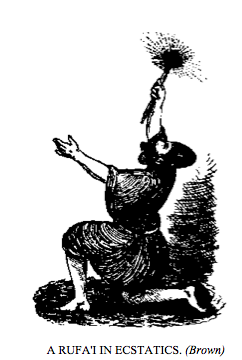
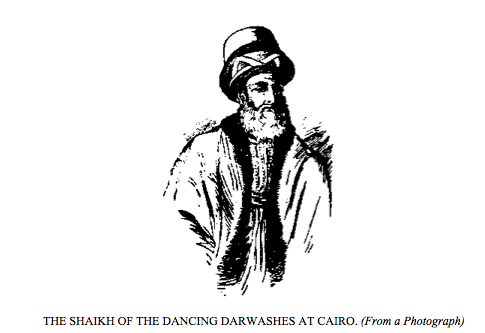
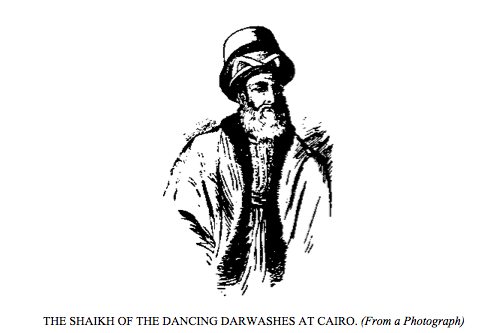
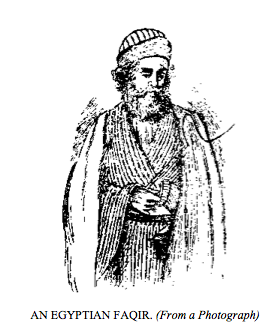
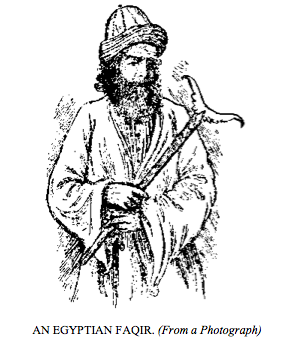
 © 2025 All Rights Reserved
© 2025 All Rights Reserved